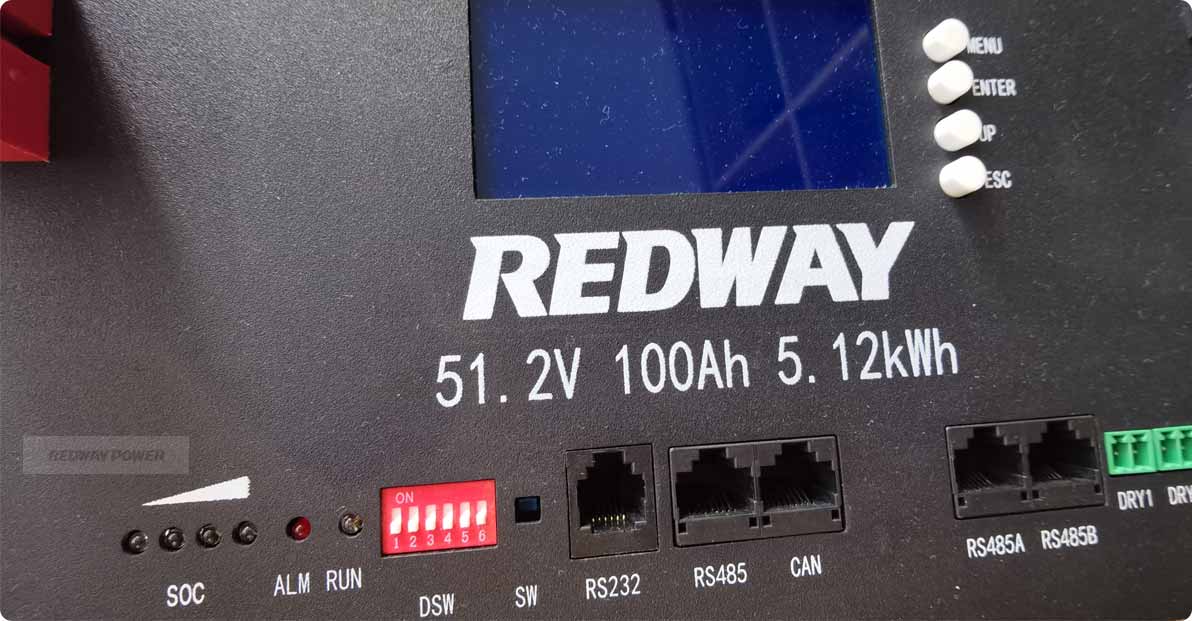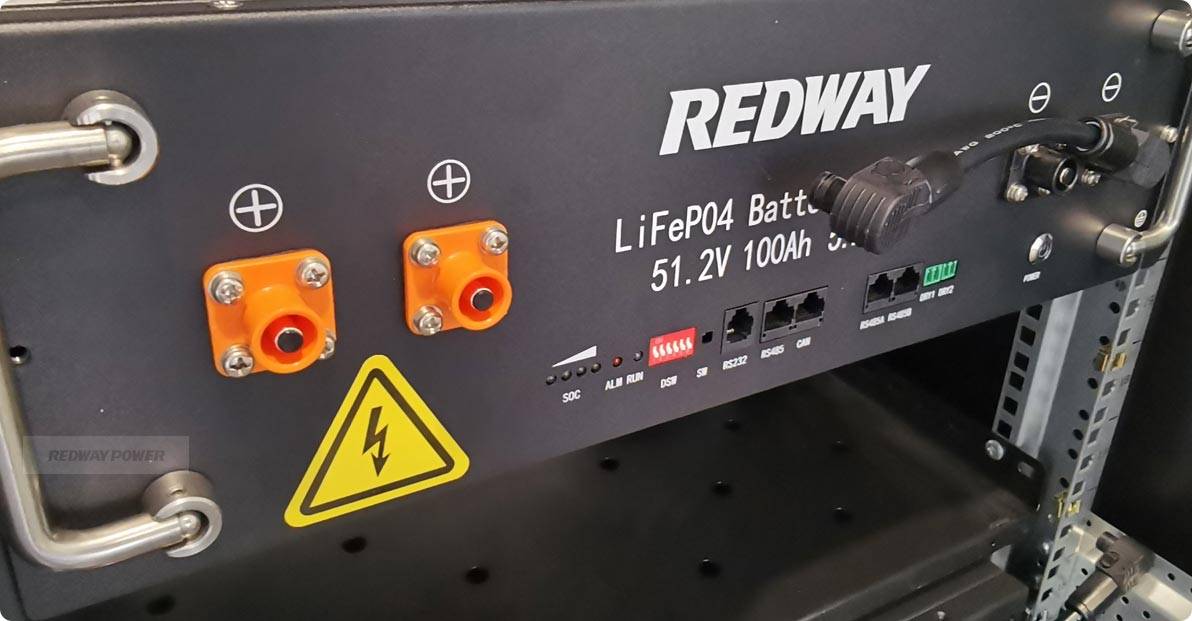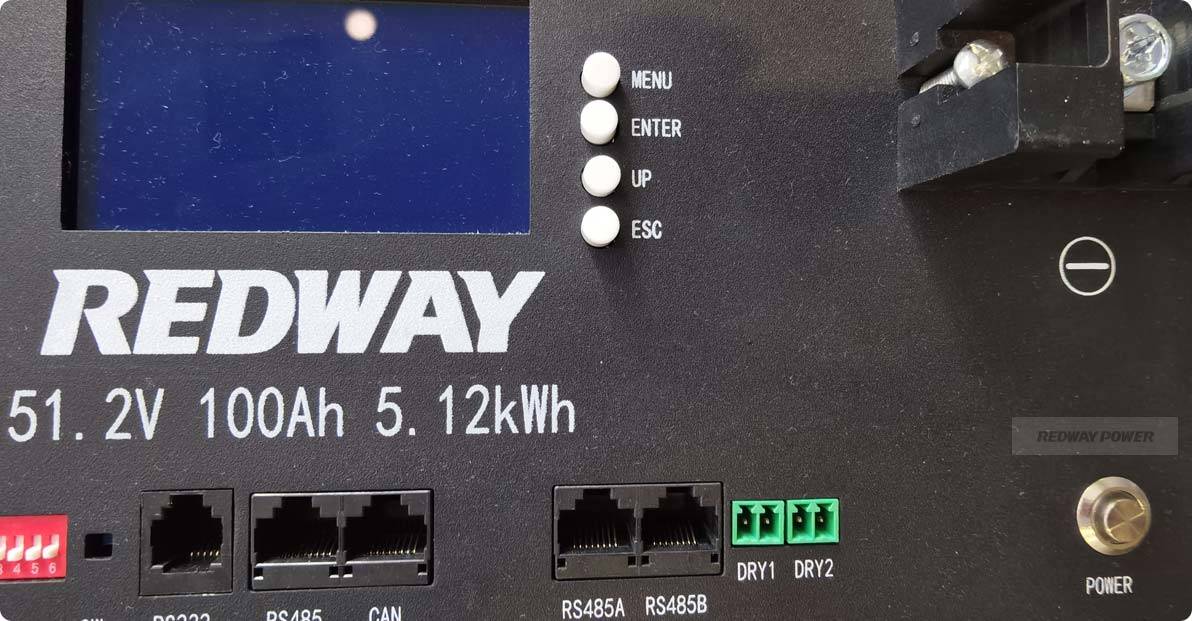Power Marine Lithium Battery Manufacturer Factory

Power Marine Lithium Battery, One-Stop Solution
Redway specializes in the design, fabrication, and development of Lithium Marine Batteries tailored for OEM applications. As a trusted lithium battery manufacturer, we provide comprehensive support for your branding initiatives, allowing customization of Lithium Marine Batteries with your unique logo, design, size, and specifications.
Our team of battery experts is ready to assist you in selecting the optimal Redway Lithium Marine Battery design, utilizing the most suitable manufacturing processes. Electric boats were among the first to adopt lithium-ion batteries, appreciating their inherent safety and nearly fireproof characteristics—crucial for components located near the rider's knees. Additionally, Redway's Lithium Marine Batteries offer an extended cycle life compared to other lithium batteries.
Best Marine Lithium Batteries 2024

Power Marine Battery (Unit 1)

Power Marine Battery (Unit 2)

Power Marine Battery (Unit 3)

Power Marine Battery (Unit 4)
What is the wholesale price of lithium battery?
You can click contact us or phone call us. We will give you multiple options of price.
Is Redway Power a trading company or factory?
Redway Power is a company with its own factory, integrating research, development, production, and sales.
How about the quality of Redway's LiFePo4 Battery product?
Redway Power boasts over 12 years of experience in LiFePO4 battery production and is an authorized supplier for CATL and BYD.
Can you do an OEM/ODM project?
Yes, we have engineers available to assist in designing and developing any related products.
What’s your MOQ?
MOQ varies according to battery voltage and capacity.
What payment terms can we accept?
We accept TT/Paypal/West Union, etc.
Marine Lithium Battery Knowledge
Discover key knowledge about marine lithium batteries. Marine lithium batteries typically have a lifespan of 3,000 to 5,000 charge cycles. They offer advantages such as higher efficiency, lighter weight, longer-lasting performance, and faster charging times compared to lead-acid batteries. It is important to handle, charge, and store marine lithium batteries safely to maximize their potential and ensure their longevity.
Do lithium batteries really last 10 years?
- Lifespan of Well-Maintained Lithium Batteries: When lithium-ion batteries are well-maintained, they have the potential to last around 8 to 10 years. This extended lifespan is a result of advancements in battery technology and the ability to withstand numerous charging cycles.
- Factors Influencing Lifespan: The lifespan of lithium batteries can be influenced by various factors such as usage patterns, charging habits, temperature conditions, and overall battery management. Proper care and adherence to recommended guidelines can significantly impact the longevity of lithium batteries.
How do you charge lithium ion batteries?
- Use the Right Charger: It is important to use the charger provided by the device manufacturer or a compatible charger that meets their specifications. This ensures that the battery is charged with the appropriate voltage and current, optimizing its charging process.
- Partial Charging: Charging the battery partially, rather than fully, can contribute to its longevity. By avoiding complete discharge and keeping the battery at a moderate charge level, you can help extend its lifespan and maintain its overall performance.
- Avoid Full Battery Discharges: Full battery discharges should be avoided whenever possible. Allowing the battery to reach extremely low levels can negatively impact its long-term reliability and capacity. It is advisable to recharge the battery before it reaches critically low levels.
How do you store lithium ion batteries?
- Temperature and Environment: Lithium-ion batteries should be stored in a well-ventilated, dry area within a specific temperature range. It is advisable to keep the storage temperature between 40 and 80 degrees Fahrenheit. This range helps prevent extreme temperature fluctuations that can impact the battery’s performance and lifespan.
- Sunlight, Heat, and Water: To protect lithium-ion batteries, it is important to store them away from direct sunlight, heat sources, and water. Exposure to excessive heat or moisture can lead to battery degradation and potential safety hazards. Keeping the batteries in a dry environment helps maintain their integrity and reliability.
How long do lithium batteries last in storage?

- Alkaline and Primary Lithium Batteries: Alkaline and primary lithium batteries have a storage lifespan of up to 10 years. During this time, there might be a moderate loss of capacity, but they can still be used effectively for various applications. It is important to store these batteries in a dry and cool place, away from freezing temperatures.
- Lithium-Ion Batteries: Lithium-ion batteries also have the potential to last for many years in storage. There have been cases where 10-year-old lithium-ion batteries were found to be functional. However, it is worth noting that the exact lifespan of lithium-ion batteries in storage can vary depending on factors such as battery quality, storage conditions, and the number of charge cycles the battery has gone through.
Does a lithium battery need a special charger?

- Normal SLA Charger: In some cases, a normal sealed lead-acid (SLA) charger without the de-sulfate mode can be used to charge a lithium battery. This means that if you have an SLA charger, you can use it to charge your lithium battery. However, it’s important to note that this is not the ideal or recommended method.
- Importance of a Special Charger: To ensure the optimal charging process and maintain the longevity and performance of lithium batteries, it is highly recommended to use a charger specifically designed for lithium batteries. These chargers are engineered to provide the correct voltage and current levels required for efficient and safe charging of lithium batteries.
Should lithium batteries be stored full or empty?
- Avoid Full Charge or Complete Discharge: Storing lithium batteries fully charged or completely empty can have negative effects on their longevity and performance. Fully charging lithium batteries before storage can lead to a loss of usable life, while storing them completely empty can cause issues as well.
- Optimal State of Charge: The recommended state of charge for storing lithium batteries is around 40-50%. This level helps maintain the battery’s health and longevity, preventing issues associated with overcharging or complete discharge. Storing lithium batteries at this charge level ensures that they are ready for use when needed.
Is it OK to store lithium batteries in the garage?
- Cool and Dry Environment: Storing lithium batteries in a garage is generally acceptable, but it is crucial to ensure a cool and dry environment. Extreme temperature fluctuations can have a negative impact on the performance and lifespan of lithium batteries. Therefore, it is important to avoid exposing them to extreme temperatures, both high and low.
- Temperature Considerations: Lithium batteries should be stored away from extreme heat or cold. High temperatures can cause the battery to degrade faster, while low temperatures can affect its performance. It is advisable to store lithium batteries in a temperature range between -10°C and 50°C to maintain their optimal condition.
Is it safe to store lithium batteries in the house?

- Avoid Storing Lithium-ion Batteries: It is generally advised not to store lithium-ion batteries inside a home. This is due to the potential risks associated with lithium-ion batteries, including the possibility of fire or other hazards. It is important to prioritize safety and follow the recommended guidelines.
- Cool and Dry Storage: If storing lithium batteries inside the house is necessary, ensure they are stored in a cool and dry place. Extreme temperatures and humidity can negatively impact the performance and safety of lithium batteries. Additionally, it is crucial to keep them away from direct sunlight, as exposure to sunlight can also affect their stability.
